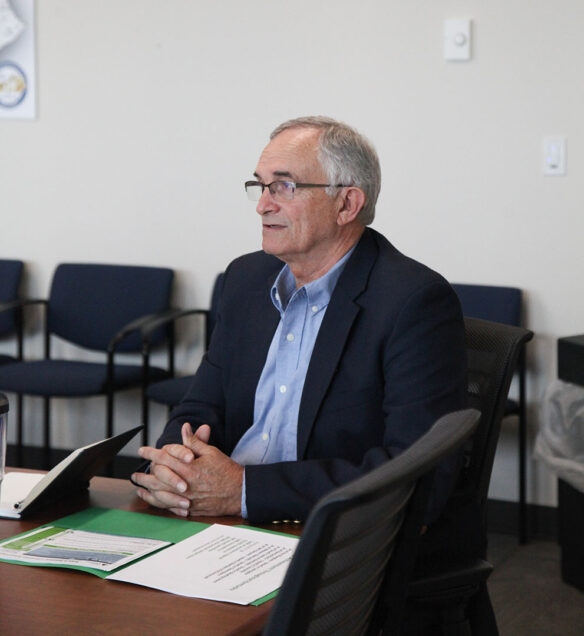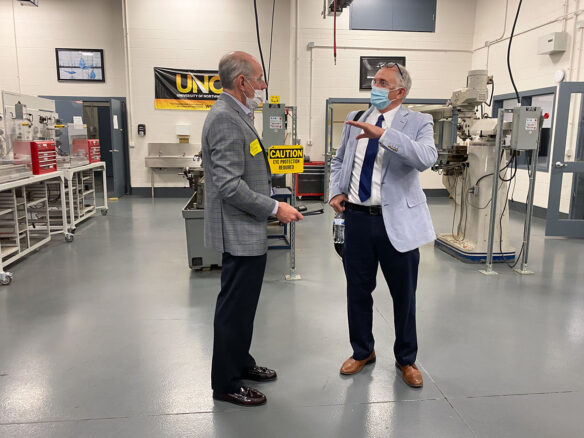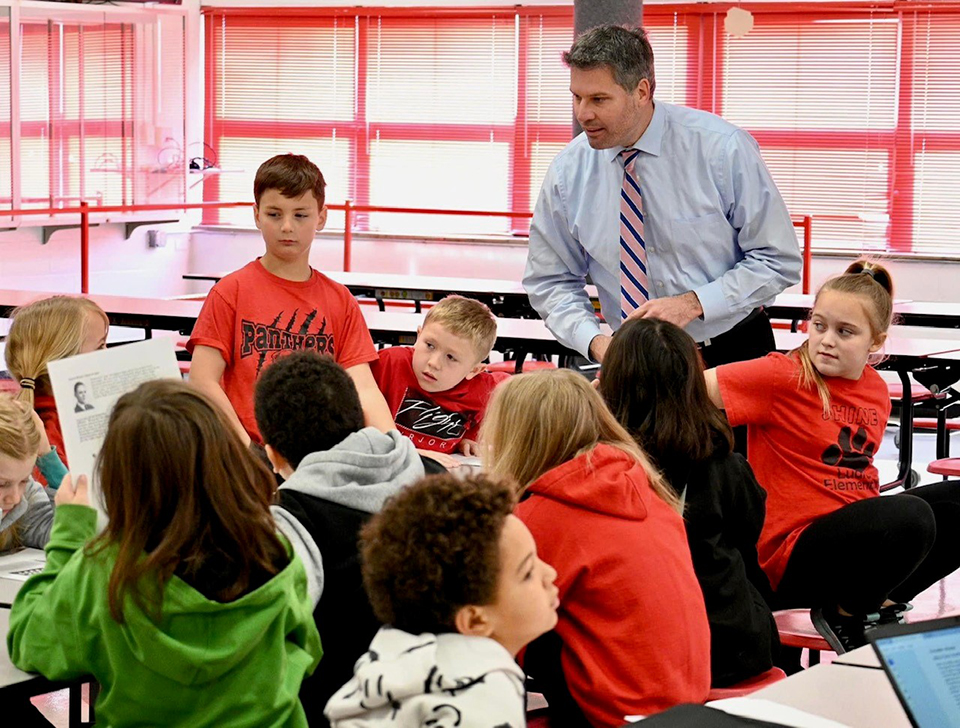
KDE Associate Commissioner in the Office of Career and Technical Education David Horseman will retire on June 30 after nearly 29 years in career and technical education. Beth Hargis will replace him in the position.
Associate Commissioner David Horseman could have retired a few years ago, but the timing never felt right. There were too many projects in the works, and he simply wasn’t ready to leave the Office of Career and Technical Education (OCTE) at the Kentucky Department of Education. A friend told him when the time was right, he would know. After the 2022 Kentucky legislative session, Horseman finally felt ready.
“It was more than I could have dreamed we could have accomplished,” he said.
The 2022 Kentucky General Assembly adjourned April 14 after passing a biennial budget for 2022-2024 that contained significant increases for key areas of education, including record funding for career and technical education (CTE). House Bill 1, sponsored by Rep. Jason Petrie, makes significant increases in the state’s budget to education over the upcoming biennium, including $58,000,000 for Local Area Vocational Education Centers (LAVECs), $155,600,000 in fiscal year 2023 for LAVEC renovation projects, and step and rank increases for area and technology center (ATC) employees of $424,000 and $444,000.
“It was the perfect storm of, there’s money available, there was a need and our legislators are really in touch with the needs of the workforce,” said Horseman. “They see the work we do in career and technical education as something that is positive for employers and potential employees.”
The funding is the result of a multiple-year project that began in June 2018 with the Kentucky Career and Technical Education Task Force. KDE and the Kentucky General Assembly and had a series of discussions on CTE funding that lasted six months. The taskforce opted to continue the discussions at a later date to clarify issues on who gets funding. Conversations were reignited prior to the 2022 legislative session.
Due to previous statutes, administrative regulations and funding levels, several locally run CTE centers were underfunded and inequitable in terms of what programs were available to students. There was just enough funding for centers to pay operational costs and teachers’ salaries. Horseman said districts were forced to get creative on how to offer students the hands-on nature of CTE courses.
“There’s a lot of student-led learning where students are doing things rather than someone telling them about doing things. There’s are a lot of hands-on activities that require resources,” he said.
Now, instead of only 32 districts receiving funding for locally operated centers, every CTE program that was available last year and attended by students will be funded. The increased funding comes right at a time of transition, as Horseman believes educational rhetoric and policies are starting to value CTE more.
“We are hearing the words that college for everyone right out of high school is not necessary,” he said. “All jobs don’t require a bachelor’s degree, but all jobs are going to require lifelong learning and postsecondary education of some type. That can be an apprenticeship, that can be different credentials that are available post high school, during high school, associate degrees.”

David Horseman (right) has worked in career and technical education for nearly 29 years. Photo courtesy of David Horseman.
Horseman understands the value of CTE, as he began his career as an engineer and a small business owner. He turned to education on the suggestion of his sister-in-law, who worked in the field. He began as an electrical technology teacher at Garrard County Area Technology Center, and later served as a principal at area technology centers in Casey and Garrard counties.
“When I had my business, I was doing training and I realized there was a lot of kids falling through the cracks that came to work full time for me,” he said. “When I got in the classroom, I felt like my perspective of having been in the business world and owning my own business over 20 years … I could share insights, insights most teachers don’t have.”
Looking back over his career, one of the most rewarding sides of teaching for Horseman was seeing his students go on to operate their own contracting businesses and offer apprenticeships or co-ops to local students.
“From the teaching sides of things, that was one of the more rewarding things I did,” he said. “As a leader, I’ve tried to build future leaders.”
Horseman came to KDE in 2014 as a regional supervisor. He was named director of technical schools and federal programs in 2015. In 2018, Horseman was appointed by then-Interim Commissioner Wayne Lewis as associate commissioner to provide overall management and oversight of programs and staff for the Division of Technical Schools and Continuous Improvement, Division of Student Transition and Career Readiness and the 51 ATCs across the state.
While he didn’t set out to become associate commissioner, Horseman felt his unique experiences as a business owner, teacher, principal and supervisor could help him lead the OCTE.
“I felt like I really understood … I knew the importance of having someone who was deeply rooted in CTE as a teacher, principal, administrator. I felt that was a necessary attitude or skillset that was needed,” he said.
As Horseman is ready to retire and spend more time with his two sons and three grandchildren, he feels confident his team is prepared for the exciting time ahead.
“I’ve got several folks that have worked for me in different locations that have moved up into leadership roles. That’s the most rewarding thing and the best thing you can do,” he said. “To me, it’s more about what this office looks like in five years than it looks like today. If I have done my job well, then the folks I leave behind will move it beyond where we are now.”
Beth Hargis will succeed Horseman and began work on June 15. Hargis previously served as the OCTE Division Director of Technical Schools and Continuous Improvement and will work closely with Horseman until his official retirement on June 30.
Horseman said he is especially grateful to the other members on the leadership team for their support during his tenure.
“My path was a lot different path to associate commissioner than the rest of the folks. All of those folks that are part of the leadership team, and all the commissioners I’ve worked with, have been very supportive and made me feel just as at home if I had been a lifetime educator,” he said.



Leave A Comment